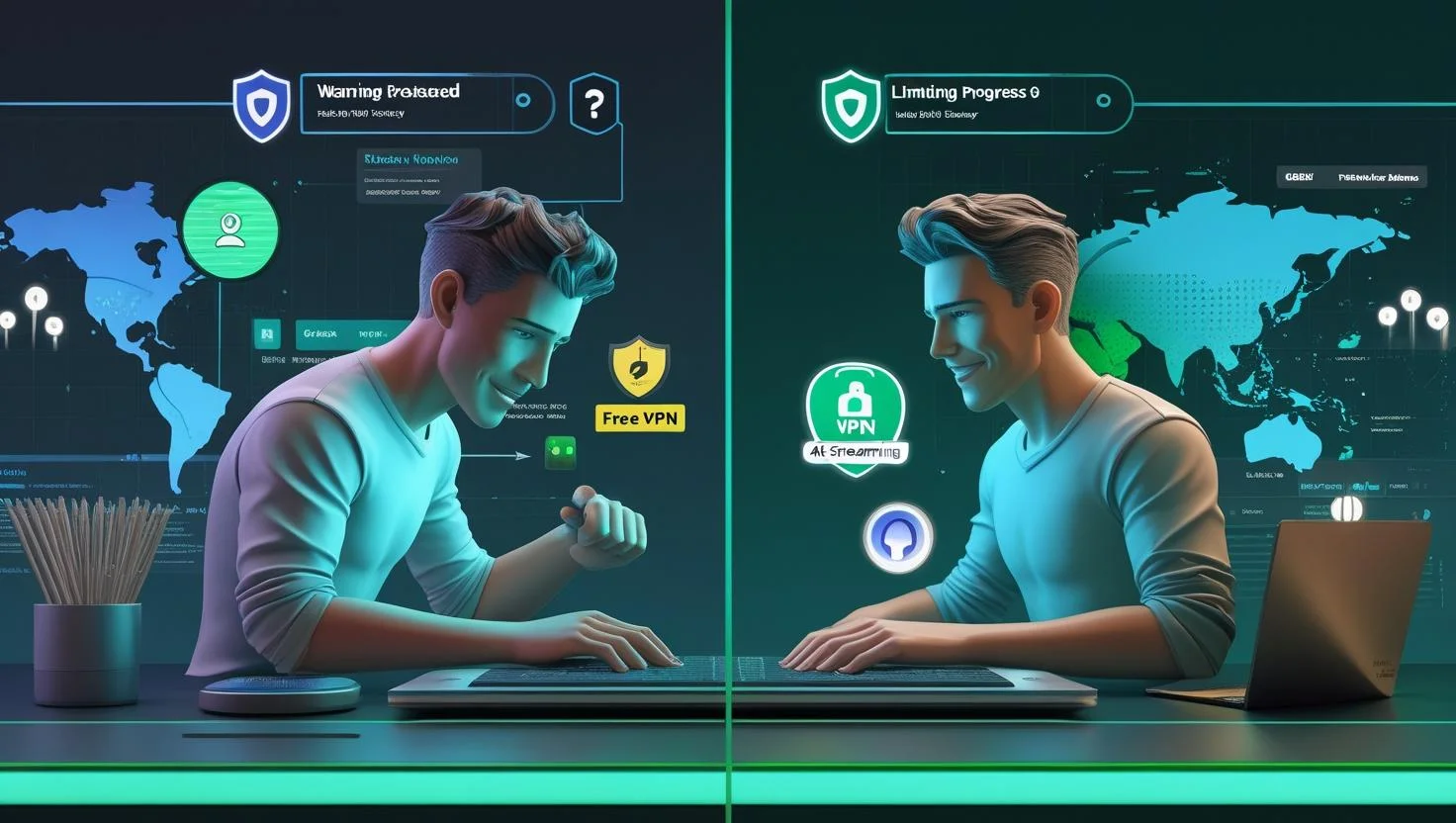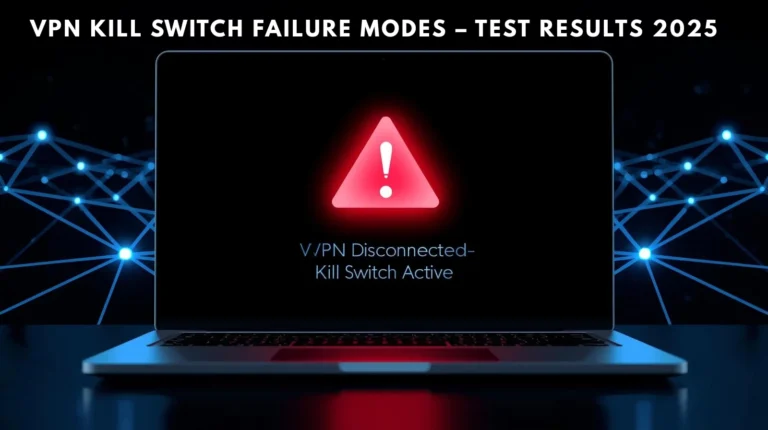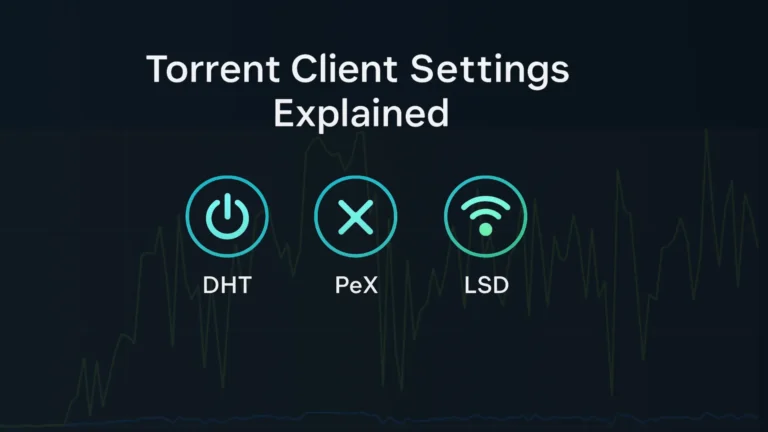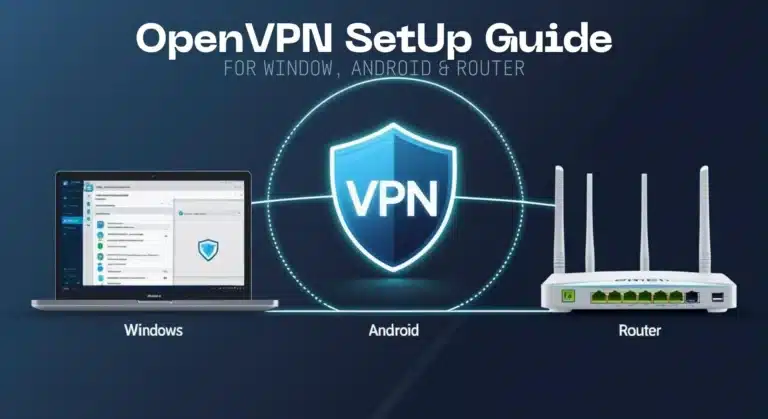In 2025, Virtual Private Networks (VPNs) are more popular than ever for protecting online privacy, accessing global content, and securing data on public Wi-Fi. You’ve likely noticed two main options: free VPNs that promise basic protection at no cost, and paid VPNs that come with subscription fees.
But is saving a few dollars worth the trade-offs in speed, security, and features? This guide digs deep into free vs. paid VPNs comparing their speed, privacy protections, security features, pricing models, legal considerations, and streaming support – with up-to-date 2025 insights to help you decide which is right for you.
We’ll also highlight high-trust VPN brands (like NordVPN, ExpressVPN, Surfshark, ProtonVPN, and Windscribe) and include real data from recent reports and speed tests. Short on time? Start with our quick comparison table below, then read on for a detailed breakdown, a handy FAQ, and expert recommendations.

Free vs Paid VPNs at a Glance: Comparison Table
To quickly illustrate the differences, here’s an overview comparing free and paid VPN services on key factors:
| Aspect | Free VPNs | Paid VPNs |
|---|---|---|
| Speed & Bandwidth | Often slow or throttled speeds due to crowded servers. Many impose data caps (e.g. 500MB–10GB/month) or limit streaming bandwidth. Example: Some free plans cap speeds at 5 Mbps. | Generally faster speeds with unlimited bandwidth. Top paid VPNs invest in high-speed servers and modern protocols (WireGuard, etc.), retaining a large percentage of base internet speed. |
| Privacy & Logging | Potential privacy risks – Free providers may log your data or inject ads to make money. Many free apps have been caught tracking or selling user data, and some even suffered data leaks in recent years. Trustworthy no-logs policies are rare among free VPNs. | Strong privacy protections – Reputable paid VPNs commit to no-logs policies (often audited independently) and don’t need to sell data. Top services (e.g. NordVPN, ExpressVPN, ProtonVPN) are based in privacy-friendly jurisdictions and undergo regular security audits. |
| Security Features | Basic encryption, usually AES-128 or AES-256, but some “free VPNs” are just proxies with weak or no encryption. Often lack advanced security tools: e.g. limited or no kill switch, malware blocking, or multi-hop. Some free VPN apps even contain malware or trackers. | Robust security – Paid VPNs use AES-256 encryption, secure protocols, and offer advanced features like kill switches, DNS leak protection, ad/tracker blocking, multi-hop (Double VPN), and more. Security is a priority, with many providers patching vulnerabilities quickly and investing in new privacy features. |
| Server Locations | Very limited servers – Free plans usually offer a few servers or countries (often 3–5 locations). Servers tend to be overcrowded, which hurts performance. Geo-unblocking is minimal – e.g. free users might not access servers optimized for streaming or specific regions. | Global networks – Paid services provide hundreds or thousands of servers across dozens of countries. This means more choices for optimal speed and geo-unblocking. For example, top paid VPNs like NordVPN, ExpressVPN, and Surfshark each offer servers in 50–90+ countries, ensuring you can find a fast, nearby server or one in the country whose content you want. |
| Streaming Access | Limited or no streaming support – Most free VPNs cannot reliably unblock Netflix, Hulu, BBC iPlayer, etc. Streaming sites frequently block the known IPs of free VPN servers. Free services also often lack the bandwidth for HD streaming. Result: Expect errors or buffering if you try to stream with a free VPN. | Optimized for streaming – Paid VPNs actively work to bypass geo-blocks on popular platforms. Many have specialty streaming servers or obfuscation to evade VPN bans. Top paid VPNs (e.g. ExpressVPN, NordVPN, Surfshark) are known to reliably access Netflix (including multiple libraries), Amazon Prime Video, Disney+, Hulu, and more in 2025. Smooth HD/4K streaming is feasible thanks to higher speeds and unlimited data. |
| Torrenting & P2P | Often blocked or restricted – Free VPNs typically disable torrenting/P2P on free servers or severely limit speeds. They may also lack a kill switch, posing a risk if the VPN drops while torrenting. A few free VPNs allow P2P but with data limits, making large downloads impractical. | P2P-friendly – Most paid VPNs support torrenting on designated high-bandwidth servers with no data caps. They provide kill switches to protect your identity during downloads and won’t throttle your speeds. If you download or share files (legally) via BitTorrent, a paid VPN is far safer and faster. Some even have port forwarding or SOCKS5 proxies for advanced users. |
| Features & Extras | Bare-bones functionality – Free services cover the basics (IP hiding, encryption) but often lack extras. You might miss out on split-tunneling, dedicated IP options, multi-device support (many free plans limit to 1 device), and 24/7 customer support. Some free VPNs are only browser extensions (encrypting browser traffic only, not other apps). | Feature-rich – Paid VPNs come with a suite of features: e.g. simultaneous connections on multiple devices (5–10 devices common), apps for all platforms, split tunneling, router support, dedicated IP options, multi-hop VPN, ad/tracker blocking, and professional customer support. These extras enhance security and convenience for power users and families. |
| Cost | $0 upfront – Completely free to use. However, the hidden costs include your time (slower speeds), privacy (some free providers monetize your data), and limited utility (might need to switch services frequently). Some free VPNs operate on a freemium model, hoping you’ll upgrade to their paid plan – so expect upsell prompts. Legal note: A free VPN might also lack funds to fight for user privacy in court if data is requested. | Subscription fee – Ranges roughly $2–$12/month depending on provider and plan length. Long-term plans can be very affordable (e.g. ~$3–4/month for top VPNs on 2-year plans). You’re paying for premium infrastructure, no ads, and peace of mind. Many top VPNs offer 30-day money-back guarantees or free trials, so you can test risk-free. The monetary cost is offset by better service, and there are often deals for new users. |
| Legal & Trust | Trust can be questionable. Many popular free VPN apps are run by secretive companies; an investigation found at least 10 of the top free VPN mobile apps had hidden Chinese ownership and poor privacy practices. If a free VPN is based in a country with data retention laws or authoritarian oversight, your data could be handed to authorities. Also, using VPNs (free or paid) is illegal or restricted in some countries (e.g. China, Iran); relying on a free VPN in such places is especially risky. | Established reputation. Paid VPN providers are usually well-established companies with transparent ownership. Many are headquartered in privacy-friendly regions (like Panama, the British Virgin Islands, or Switzerland) to avoid data retention laws. They typically have the resources for legal defense of user privacy and are more likely to notify users of government requests or fight them in court. In countries where VPN use is legal (USA, UK, Canada, Australia, India, etc.), paid VPNs pose no legal issues for users – and they offer greater confidence that your provider isn’t compromised. |
As the table shows, free VPNs come with significant limitations – but that doesn’t automatically mean they’re useless. In the next sections, we’ll examine each factor in detail. Keep in mind there are a few standout free VPN offerings (like ProtonVPN and Windscribe) that buck some trends by providing stronger privacy without charging a dime. Still, even the best free options have trade-offs that matter if you need a VPN for more than very casual use.
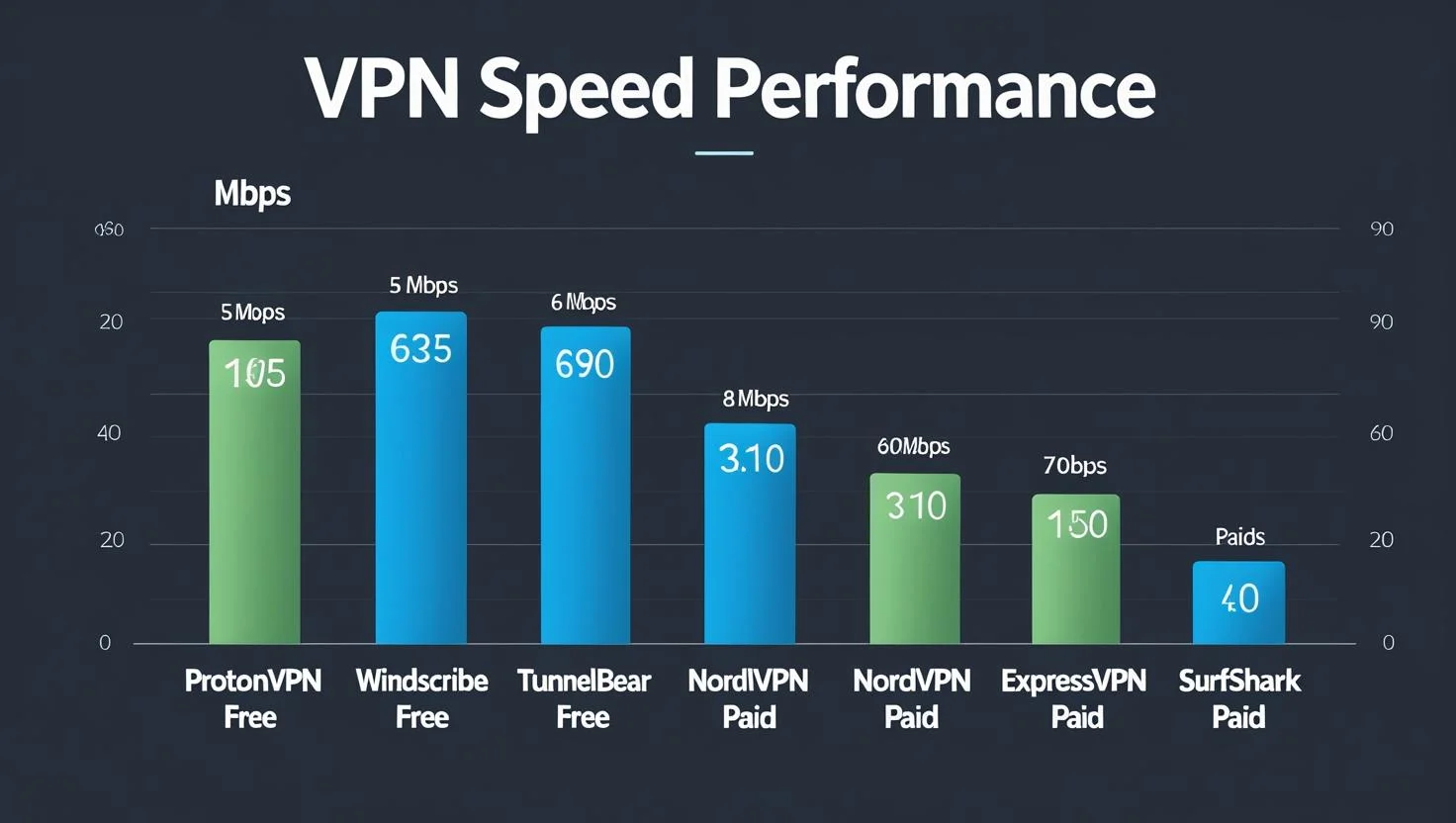
Speed and Performance
One of the first differences you’ll notice between free and paid VPNs is connection speed. VPNs work by routing your data through an encrypted server, which always adds some overhead. However, premium VPNs minimize speed loss with large server networks and modern protocols, while free VPNs often struggle.
- Server Overcrowding: Free VPN services have fewer servers and a high user load, leading to slow speeds and congestion. It’s common to experience laggy browsing or buffering on a free VPN because so many users are piled onto the same server with limited bandwidth. Paid VPNs operate thousands of servers (often RAM-based for speed) and can balance load effectively.
- Throttling and Caps: Many free plans intentionally throttle bandwidth or impose data caps. For example, some limit you to a few GB per month or even per day, after which the speed drops or the service cuts off. Hide.me’s free plan, for instance, now offers unlimited data but caps speed at 5 Mbps – fine for basic browsing, but too slow for HD streaming or large downloads. In contrast, paid VPNs provide unlimited data at full speeds. In tests, top paid providers like NordVPN (with its WireGuard-based protocol) retain up to ~85% of base internet speeds on average, which is a huge performance gain over throttled free services.
- Latency and Reliability: Free VPN servers, often being crowded and far from the user, can introduce high latency (ping), affecting online gaming or video calls. You might also encounter more disconnects. Paid VPNs usually let you choose from many server locations – so you can pick one closer to you for better latency. They also invest in stable infrastructure, resulting in more reliable connections (and features like auto-reconnect if a drop occurs).
- Consistency: With a free VPN, speed can be a gamble depending on time of day and user load. One day you might get decent speeds, the next day crawling. Premium VPNs maintain consistency by scaling their networks and sometimes even having speed-optimized servers. If performance is critical to you (e.g. for streaming, gaming, or work calls), a paid VPN is far more dependable.
Real-world insight: In 2025 speed comparisons, paid VPNs outrun free ones by a wide margin. One report notes that even the fastest free VPN (Hotspot Shield’s free plan) retained ~84% of base download speed in tests, while many other free VPNs were much slower. Top paid VPNs like ExpressVPN, NordVPN, and Surfshark routinely hit high speeds on long-distance connections, making them suitable for bandwidth-intensive tasks. Free VPNs are usually fine for casual browsing or text-based tasks, but if you plan to stream video, play online games, or download large files, the speed of a paid VPN is worth it.
Privacy and Security
When it comes to privacy, the saying “if you’re not paying for the product, you are the product” often rings true for VPNs. VPNs exist to protect your privacy, but a free VPN may actually compromise it due to their need to monetize. Here’s how free vs paid stack up on privacy and security:
- Logging Policies: Many free VPNs sustain their business by collecting user data – the very thing people use a VPN to prevent – and selling it or using it for targeted ads. They might log websites you visit, your IP address, when you connect, etc. For example, some widely-used free VPNs have been caught secretly tracking users despite claiming “no logs.” In one 2020 incident, a cluster of free VPN apps leaked over 1.2 TB of user data including connection logs and personal info, despite advertising no-log policies. On the other hand, paid VPNs are typically funded by subscriptions, not data sales. Top paid providers explicitly maintain no-logging policies that have been verified by independent audits or court cases. They have no incentive to log your activities (and risk their reputation) when you’re paying them for the service.
- Jurisdiction & Ownership: Free VPN companies are often opaque about who runs them and where they’re based. This can be a red flag for privacy. Investigative research in 2020 revealed that more than half of the popular free VPN apps at the time were based in China or had Chinese ownership, despite China’s strict internet surveillance and VPN bans. Many had very weak privacy policies. This raises concerns that such providers could be compelled to hand over data to authorities or might themselves misuse user data. Paid VPN providers tend to be more transparent – you can find information about their parent company, and many choose privacy-friendly jurisdictions (like Panama for NordVPN, the British Virgin Islands for ExpressVPN, or Switzerland for ProtonVPN) precisely to reassure users that governments can’t easily force them to log data.
- Security Measures: Free services often cut corners on security implementation. Some free mobile VPN apps have been found carrying malware or spyware. Others fail to implement up-to-date encryption or secure user data properly. A study found over 80% of tested free VPN apps had DNS leaks or other data leaks, meaning they weren’t fully protecting user data. Paid VPNs invest heavily in security – using strong encryption (AES-256), secure VPN protocols (OpenVPN, IKEv2, WireGuard), and protecting against leaks (DNS leak protection and IPv6 leak blocking are standard in good paid apps). Many paid providers also undergo security audits by third parties to ensure their apps and server infrastructures are safe from vulnerabilities.
- Advanced Privacy Features: Some privacy features are rare or non-existent in free VPNs. For example, a kill switch (which cuts internet if the VPN drops, to prevent IP leaks) is crucial for security but not all free VPNs include it. Paid VPNs universally include kill switches on desktop apps and many mobile apps. Multi-hop (Double VPN), which routes your traffic through two VPN servers for extra anonymity, is another paid-only feature (offered by services like ProtonVPN, NordVPN, Surfshark). Additionally, paid services are beginning to roll out advanced tools like Tor over VPN, dedicated IP options, or RAM-disk servers that wipe all data on reboot. Free services generally can’t match that.
- Trust and Reputation: With free VPNs, it’s hard to know whom to trust. There are a few trusted free VPN providers – typically those that also have a paid plan and a reputation to uphold. ProtonVPN is a great example of a trustworthy free VPN: it’s run by a privacy-focused company (based in Switzerland), has an audited no-logs policy, and its free tier doesn’t abuse your data (it’s supported by paying users). Windscribe is another relatively trusted service offering a free tier (10 GB/month) alongside a paid plan; it’s transparent about its operations and has strong encryption. These reputable free offerings operate more like “freemium” models – using the free version to build goodwill and upsell some users to premium, rather than selling your info. In contrast, completely free VPNs with no paid option (or those with sketchy backgrounds) should be approached with caution. Always research a free VPN’s privacy policy and who’s behind it. If it’s not crystal clear, that’s a red flag.
Bottom line: If privacy and security are your main reasons for using a VPN (as they should be for many), a paid VPN is the safer choice. Free VPNs not only might fail to adequately protect you – some could actively compromise your privacy. That said, using a reputable free VPN is still better than no VPN at all in many cases (for example, to encrypt your connection on public Wi-Fi). Just be extremely selective: stick to known names like ProtonVPN Free or Windscribe free, which stand out for not logging or injecting ads. But for handling any sensitive data or if you require confidence that your VPN won’t turn around and sell your information, invest in a quality paid VPN. The cost is small compared to the value of your personal data and security.
Features and Functionality
Beyond core privacy and speed, what can you actually do with a VPN? Here’s where paid services justify their cost with a richer feature set and better user experience:
- Server Network and Locations: As mentioned, free VPNs offer very limited server selection. You might get to choose from a few countries or a few servers (or sometimes no choice at all – the app auto-connects you to some available server). For example, ProtonVPN’s free plan allows only servers in 3 countries (US, Netherlands, Japan). Windscribe’s free tier gives about 10 countries (with 10 GB data cap). This limitation means if you need an IP from a country outside the free list, you’re out of luck. Paid VPNs boast expansive networks – hundreds of servers in dozens of countries. Need an IP in South America or East Asia or Eastern Europe? A top paid VPN likely has multiple options. This is crucial for accessing region-specific content or finding a fast server near your location.
- Simultaneous Connections & Device Support: Free VPN plans often restrict you to one device at a time (and some free VPNs are available only on certain platforms, like just a browser extension or just mobile). Paid VPNs typically allow 5 or more simultaneous connections, letting you protect your phone, laptop, tablet, and other devices all at once under one account. They also have apps for all major operating systems (Windows, macOS, Linux, iOS, Android) and even offer router setups, browser extensions, smart TV apps, etc. If you have a household or want to cover multiple devices, a paid VPN is far more convenient.
- User Experience & Support: Paid services usually offer a polished app experience – intuitive interfaces, fast server switching, and helpful features like server recommendations or favorites, auto-connect options, and 24/7 customer support (via live chat or email). Free VPNs may have basic or even clunky apps, and support is typically limited (maybe an FAQ or forum; don’t expect quick personal support for a free product). Also, free VPN apps might show ads or prompts which detract from the experience. Paid VPN apps are ad-free and often let you fine-tune settings (protocol selection, auto-launch, etc.) to your liking.
- Advanced Features: If you need anything beyond “click button, get new IP,” paid VPNs are the way to go. Some popular advanced features found in paid VPN services include:
- Split Tunneling: Choose which apps or sites go through the VPN and which go through your regular connection. Useful for multitasking or accessing local devices while on VPN. Rarely available in free versions.
- Kill Switch: (As discussed) Cuts internet if VPN drops – a must for torrenters or anyone concerned about IP leaks. Few free VPNs have a reliable kill switch; all good paid ones do.
- Ad/Tracker Blocking: Some VPNs like NordVPN (Threat Protection), Surfshark (CleanWeb), or ProtonVPN (NetShield) include features to block ads, trackers, and malware domains at the VPN server level. This can speed up browsing and improve privacy. Free VPNs generally don’t offer this.
- Multi-hop (Double VPN): Routes your traffic through two VPN servers for double encryption and IP hopping. Available on ProtonVPN Plus, NordVPN, Surfshark, etc. Not available on free plans.
- Streaming-optimized or Specialty Servers: Paid providers often label certain servers for specific tasks – e.g. streaming servers, P2P servers, or Tor over VPN servers – to give the best performance for those activities. Free services usually have no such specialization (everyone is on the same servers).
- Dedicated IP: Some paid VPNs let you purchase a unique static IP address for your use (useful to avoid CAPTCHA or for business). Free VPNs cannot offer this.
- WireGuard Protocol: Many leading VPNs have adopted the WireGuard protocol (or their variants like NordLynx) for faster and more secure connections. Some free VPNs may still be limited to older protocols or only offer WireGuard on paid tier.
- Updates and Maintenance: With a paid VPN, you can expect frequent app updates, security patches, and improvements. The providers have the budget to actively maintain the product. Free VPNs might not update as often, which could leave bugs or compatibility issues unresolved longer.
In summary, free VPNs stick to the basics, which might be enough for very light use or one-off needs. But paid VPNs offer a comprehensive tool that integrates smoothly into your digital life. If you’re an enthusiast or a professional needing secure connectivity, the extra features of a paid VPN can be game-changers. Even for average users, the quality-of-life improvements (no ads, multiple devices, good support) make the VPN experience much more enjoyable.
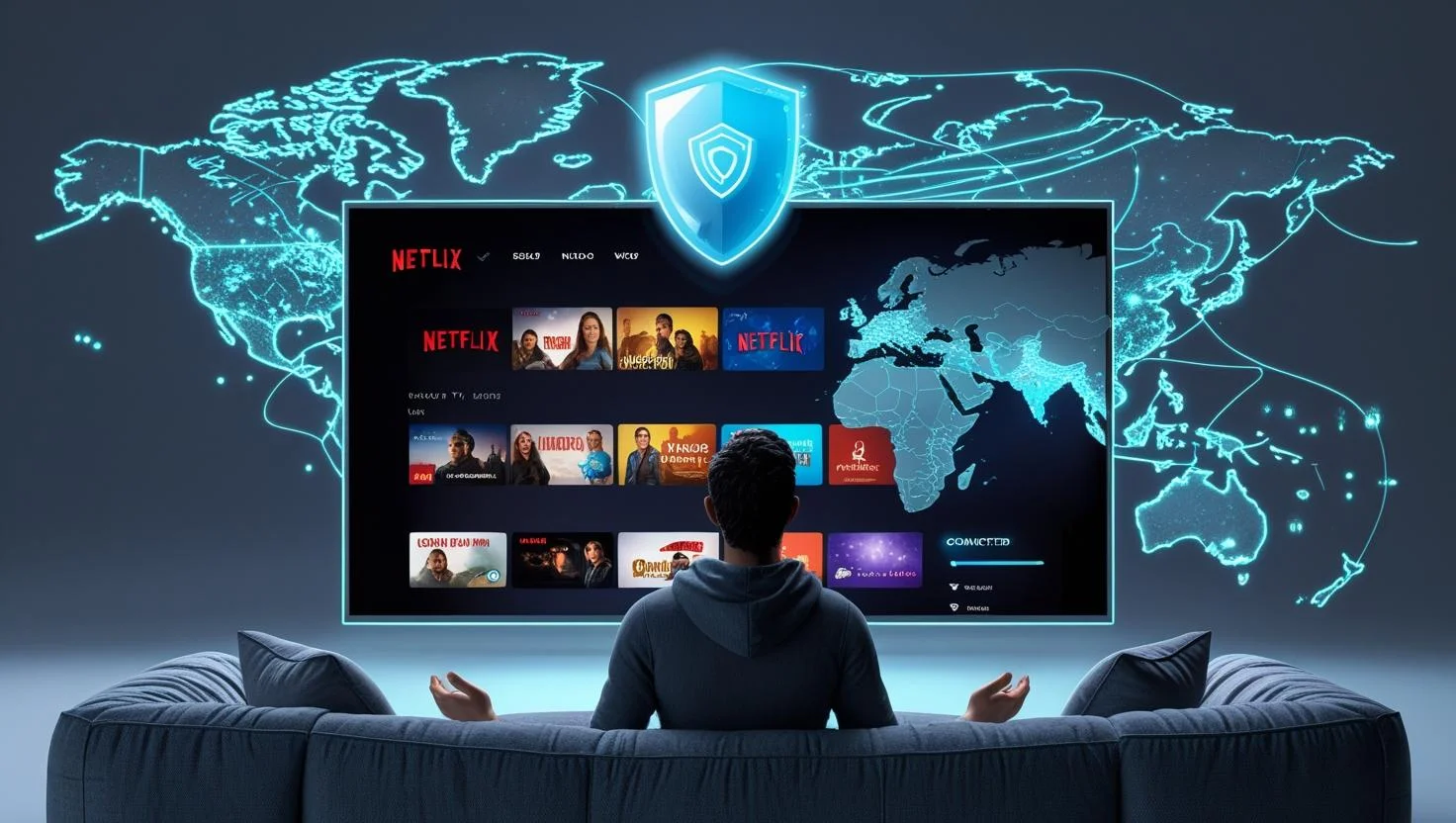
Streaming and Torrenting Capabilities
Two of the most popular reasons people get VPNs are streaming geo-blocked content (like Netflix libraries, BBC iPlayer, sports events) and torrenting files. These are areas where free and paid VPNs differ dramatically:
Streaming with Free VPNs:
If your main goal is to stream shows or movies not available in your country, a free VPN will likely disappoint you. Streaming services aggressively block known VPN IPs, and free VPNs, with their limited servers, are the first on the blacklist. According to Comparitech, virtually all free VPNs fail to work with Netflix and other major streaming platforms. You might encounter the dreaded “Netflix Proxy Detected” error when using a free VPN. Additionally, free VPNs often lack the bandwidth for smooth streaming – even if you connect, you could be stuck with low resolution and buffering. Another limitation is location choices: The show you want might be on Netflix US, but your free VPN only has a server in the Netherlands, for example.
Streaming with Paid VPNs:
Paid VPNs shine here. Top-tier services invest in techniques to bypass VPN blocks, such as rotating server IPs, implementing Smart DNS features, or using obfuscated servers that disguise VPN traffic. For instance, ExpressVPN and NordVPN are well-known for reliably accessing Netflix (including U.S., U.K., Japan, etc.), Hulu, Disney+, HBO Max, Amazon Prime Video, and more. Surfshark even advertises working with 20+ Netflix libraries, which is great for avid streamers. In 2025, streaming providers still cat-and-mouse with VPNs, but premium VPNs have the resources to adapt. If you’re an expat wanting to watch your home country’s shows or just someone who wants the full catalog of global Netflix content, a paid VPN is practically a must. (Tip: If budget is a concern, some paid VPNs like Surfshark and NordVPN are quite affordable and let you stream in HD reliably – far better value than a free VPN that doesn’t work at all for this purpose.)
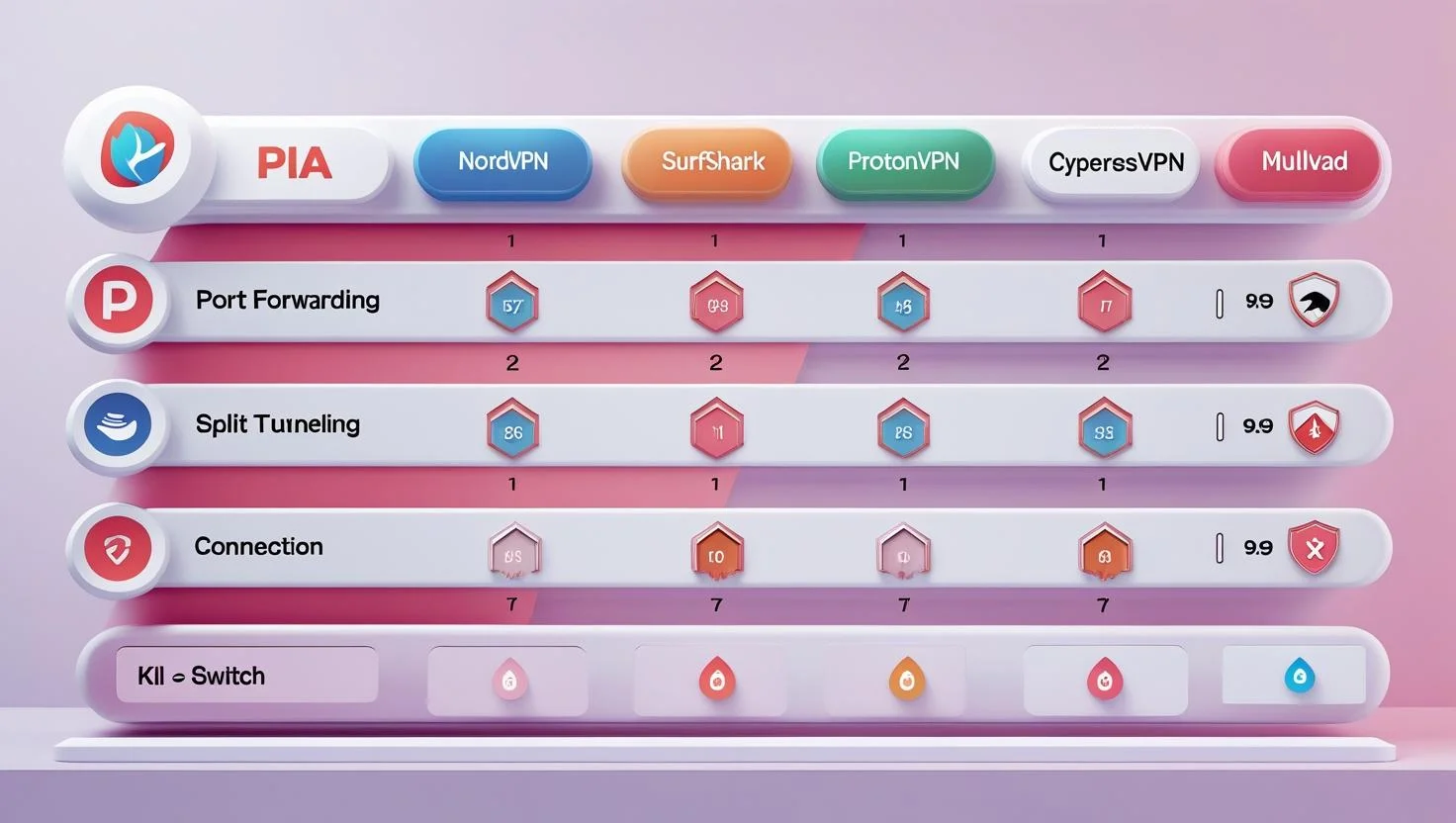
Torrenting with Free VPNs:
Torrenting (P2P file sharing) is another area where free VPNs impose strict limits. Many free VPN providers disable P2P traffic on free servers – either outright blocking it or stating in their terms that torrenting is not allowed on free accounts. This is often done to save bandwidth and avoid legal headaches. Even if torrenting works, the combination of slow speeds and data caps makes downloading large files impractical. Imagine having a 10 GB monthly limit; one HD movie torrent could exhaust that. Furthermore, without a kill switch or strong encryption, using a free VPN for torrenting could expose your IP if the connection drops or if the VPN has leaks. That’s risky, as your ISP or others in the torrent swarm could see your real identity.
Torrenting with Paid VPNs:
Paid VPNs are well-suited for torrenting both in performance and safety. They typically offer unlimited bandwidth, so you can seed/leech to your heart’s content. Many have special P2P servers in countries where torrenting is tolerated; these servers are optimized for high bandwidth and sometimes even tuned for faster peer discovery. Crucially, paid VPN applications almost always include a kill switch, which torrenters should always enable to prevent any IP leak if the VPN disconnects. The strong encryption and no-logs policies of reputable paid VPNs also mean your ISP can’t see what you’re downloading, and the VPN provider itself isn’t monitoring your activity. Some VPNs (like Private Internet Access, NordVPN, etc.) even include port forwarding on certain servers, which can improve torrenting speeds – a feature you won’t find in free services. Lastly, because paid VPNs maintain good speeds, you can download large files much faster. For example, if your normal connection is 100 Mbps, a good paid VPN might let you torrent at 80-90 Mbps, whereas a free VPN might bottleneck you to a crawl.
Summary:
For streaming and torrenting, free VPNs are generally not worth the trouble. If these activities are important to you, a paid VPN pays for itself in convenience and performance. You might try a free VPN out of curiosity – and indeed, some people attempt to use ProtonVPN Free or Windscribe Free for very light streaming or occasional small downloads. But you’ll quickly hit limitations (Proton Free doesn’t support Netflix at all – it even states streaming is a Plus feature; Windscribe free can sometimes access Netflix in a browser with workarounds, but it’s hit-or-miss). On the flip side, with a paid VPN you can enjoy Netflix, Hulu or BBC iPlayer from anywhere and torrent safely without worrying about data limits or ISP letters. For those unsure which VPN to pick for these purposes, check out our dedicated guides like Best VPN for Netflix and Best VPN for Torrenting (which highlight leading services for streaming and P2P respectively).
Pricing and Value Considerations
We know free VPNs cost $0 and paid VPNs cost money – but let’s talk about value. Sometimes paying a little can save you a lot of hassle. Here are the key points to consider financially:
- Monetary Cost: Free VPNs, by definition, don’t charge you to download or use them (though some require account registration). Paid VPNs use a subscription model. In high-CPC countries like the US, UK, Canada, or Australia, you’ll often see deals around $2-5 per month if you commit to a long-term plan, or around $10-12 if paying monthly. For example, as of 2025, a 2-year Surfshark or NordVPN plan can come out to around $3/month (with promotions), while ExpressVPN is around $6-7/month on annual plans (Express is pricier but known for quality). Also, many paid VPNs offer discounts for students, or include extra months free on special deals. If you’re in India or other countries, local pricing and currency conversion can affect the cost, but many providers adjust pricing to be competitive globally.
- The True Cost of “Free”: It’s been alluded to, but it bears repeating: a free VPN isn’t truly “free” beyond money. You might pay with:
- Your time and patience: dealing with slow speeds, limited servers, waiting in queues (some free VPN apps have wait times), reconnecting when you hit data limits, etc.
- Your data and privacy: as discussed, some free VPNs might collect your data for profit. This is a hidden cost that could have consequences like more spam, targeted ads, or worse, exposure of your sensitive info.
- Missed opportunities: If a free VPN doesn’t let you do what you intended (like watch a show or download a file securely), that’s a lost opportunity.
- Security risks: Using a sketchy free VPN could even introduce malware that might cost you in terms of compromised accounts or device cleanup.
- Value of Paid VPN Features: When you pay for a VPN, you’re not just buying “a VPN connection,” you’re buying a service with support and continual improvements. Think of it like this – a paid VPN is a long-term product that will usually get better over time (through updates, new servers, new features), whereas free VPNs rarely evolve much (unless you upgrade). You also get peace of mind that there’s a customer support team to help if something goes wrong (try getting timely help from a free VPN… usually not possible). If using a VPN regularly is important to you for work, travel, or daily privacy, the value of a reliable service is high.
- Freemium Upgrades: Some of the best “free” VPNs are actually freemium models for paid VPNs. For instance, ProtonVPN’s free plan is basically a teaser for ProtonVPN Plus (paid), and Proton will occasionally remind free users of the benefits of upgrading. Windscribe will email free users about upgrading as well. If you find yourself liking a free VPN, consider supporting that company by upgrading – you’ll remove the limitations and get all the benefits, usually at a modest cost. Plus, supporting reputable VPN companies helps them continue to maintain strong privacy practices.
- Money-Back Guarantees and Trials: If you’re on the fence about paying, remember that most premium VPNs have a 30-day money-back guarantee. You can try the top VPN (with full features) for a few weeks and if it doesn’t meet expectations, get a refund – no harm done. Services like NordVPN, ExpressVPN, Surfshark, CyberGhost, etc. all offer such guarantees (just cancel within 30 days). Some even offer free trials: for example, Surfshark and ExpressVPN often have 7-day free trials on mobile, and ProtonVPN Plus has a 7-day free trial for new users. This means you can effectively test a paid VPN for free to see the difference yourself.
- Combine with Other Needs: Sometimes paid VPNs come bundled or offer additional value. E.g., certain VPNs include a password manager, cloud storage, or identity theft protection in their higher-tier plans. If you have those needs, paying a bit more for a bundle can be cost-effective. Free VPNs, obviously, won’t bundle extra services.
So, is a paid VPN “worth it”? For anyone who values their online privacy, uses the internet heavily, or wants to unlock content globally, yes, it’s usually worth the few dollars a month. The cost is minor compared to other digital expenses (think about how much you might pay for streaming subscriptions, cloud storage, software, etc.). If a VPN helps you avoid one cyber incident, or gives you access to content that you’d otherwise miss, it pays for itself. On the other hand, if your VPN usage is extremely sparse – say you only occasionally need a VPN when traveling or for a one-time task – then a free VPN might suffice and a paid one might not be “worth it” for that limited scenario. In the next section, we’ll clearly outline which types of users should stick with free and who should go paid.
Legal and Safety Risks
We’ve touched on privacy and data risks, but there’s another angle to consider: legal implications and overall safety of using a given VPN. Here’s how free vs paid compare in this regard:
- Legality of VPN Use: In most of the world (including the United States, UK, Canada, Australia, and India), using a VPN is perfectly legal. It doesn’t matter whether the VPN is free or paid; it’s a legitimate tool for privacy. The illegal part would be using a VPN to conduct illegal activities (which is illegal regardless of VPN). However, some countries have banned or restrict VPN use (e.g. China requires government-approved VPNs; Iran and Russia have bans on unauthorized VPN services). Using any VPN in those places could pose legal risk if caught. If you are in or traveling to a country with VPN bans, relying on a free VPN is particularly risky – free services are more likely to be detected by government censors and less likely to have stealth modes. Paid VPNs often have obfuscated servers specifically to evade detection in high-censorship regions. Additionally, paid providers might issue transparency reports or warnings if governments try to block them, whereas a free VPN could just silently stop working or give you no guidance.
- Trust and Accountability: Paid VPN companies have a reputation to maintain and a user base to keep happy. If something goes wrong (like a security breach or an accusation of logging), they face public scrutiny and risk losing paying customers. This accountability incentivizes them to operate above-board and invest in security. Free VPNs, especially fly-by-night ones, don’t have the same level of accountability. If a free VPN misuses your data or shuts down suddenly, you don’t have much recourse. They might not even have proper contact info or support. In worst cases, some free VPNs turned out to be outright scams or malware in disguise. For instance, the infamous Hola VPN was a free service that not only leaked IP addresses but was caught selling users’ bandwidth for a botnet-like service – a huge safety red flag. Paid services are highly unlikely to engage in such behavior because it would destroy their business.
- Legal Requests and Data Security: Consider what happens if law enforcement or governments come knocking for user data. A reputable paid VPN with a no-logs policy can genuinely say “we have nothing useful to provide” – and some have proven this in court cases. Also, many paid VPNs are in countries where they aren’t legally required to keep logs (and would fight requests; some even move servers to RAM-only to avoid any retention). A small or free VPN might not have the legal muscle or will to resist. In fact, if a free VPN keeps logs (as many do), they might comply quickly with a subpoena or even a casual request, since their primary business isn’t protecting users but rather operating a free service under the radar. There’s also the scenario of data breaches – free VPNs with poor security might inadvertently expose user data (as happened with those multiple free VPN database leaks in 2020–2022). Top paid VPNs put a premium on preventing breaches (with measures like diskless servers, bug bounty programs, etc.).
- Ads and Malicious Content: Many free VPNs show you ads, which is more of an annoyance than a legal issue, but consider that ads can sometimes be vectors for malware (e.g. malicious ad networks). A paid VPN won’t inject ads, reducing that risk. Additionally, paid VPNs often include malware and phishing protection via their apps (alerting or blocking if you visit a malicious site), acting as a safety net.
- Country of Operation: The country where a VPN company is based can affect user safety. For example, a VPN based in a country with mandatory data retention or surveillance laws might be forced to log or monitor users. This is why a lot of paid VPNs choose not to be based in, say, the US or UK, despite serving those markets. They prefer countries like Panama, Switzerland, the British Virgin Islands, or others known for privacy. Free VPNs are often based wherever is cheapest to operate (some in countries known for not upholding data privacy). This isn’t to say location alone makes a VPN bad, but it’s a piece of the trust puzzle. It’s easier to trust a service like ProtonVPN (based in Switzerland, strict privacy laws) or ExpressVPN (BVI, no data retention), as opposed to an unknown free VPN based in who-knows-where.
Safety Tip
Whether free or paid, always download VPN apps from official sources (App Store, Google Play, official website). Fake or repackaged VPN apps exist, especially with free VPNs, which could contain malware. Stick to well-known providers. If you’re considering a free VPN, double-check its real name and reviews – cybercriminals often create copycat apps with similar names to trap people searching for “free VPN.”
In conclusion on legal/safety: Paid VPNs generally offer a higher assurance of safety, both technically and legally. Free VPNs can be used safely if you pick a known, reputable one and use it in the right context, but the margin for error is thinner. Always weigh the risks – if you’re doing anything sensitive, the safe bet is a paid, trusted VPN service for maximum protection.
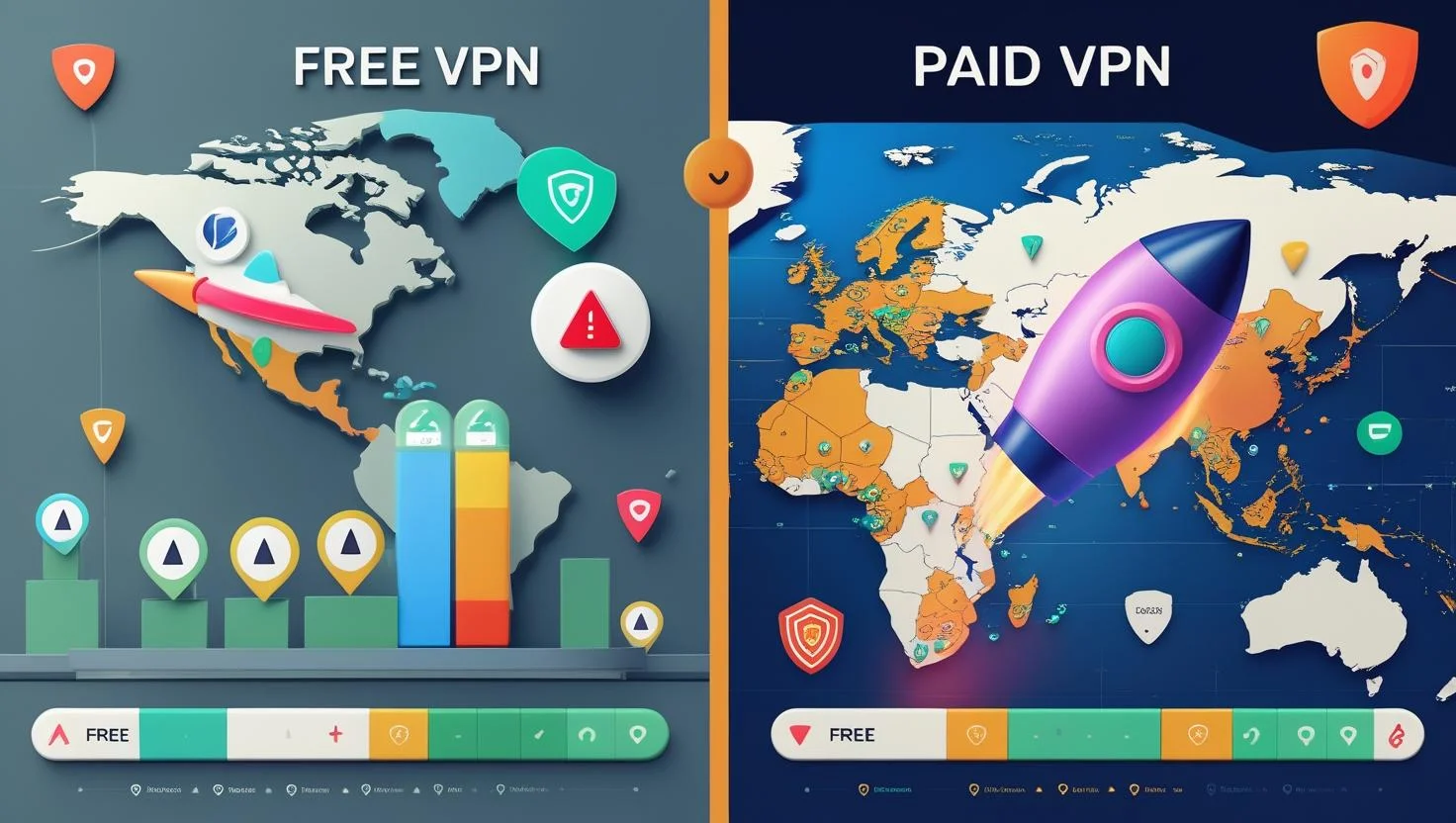
Free vs Paid: Which Should You Choose?
After weighing all these factors, the final decision comes down to your specific needs and usage. Both free and paid VPNs have their place. Let’s break down who benefits most from free VPNs and who really should invest in a paid VPN.
When a Free VPN Is Worth It:
You might opt for a free VPN if you match one or more of these scenarios
- Casual or Occasional Use: If you only need a VPN once in a while – for example, you’re traveling for a week and want to encrypt hotel Wi-Fi, or you occasionally need to bypass a simple geoblock – a free VPN can do the basic job. It’s a convenient way to get short-term protection without sign-ups or payments.
- Tight Budget: Not everyone can add another subscription to their bills. If you truly cannot afford a paid VPN, using a free VPN from a reputable source (instead of nothing) can at least provide some privacy for basic browsing or research. Just be choosy (stick to trusted ones) and avoid doing ultra-sensitive work over a free VPN.
- Testing the Waters: A free VPN can act as a learning tool. If you’re new to VPNs, trying a free service can help you understand how they work, what speeds to expect, and which features you might need. Many people start with a free plan (like ProtonVPN Free) and then decide if they should upgrade. It’s a risk-free way to see the benefit of changing your IP, encrypting traffic, etc.
- Bypassing Light Censorship: In some cases, you might encounter a web filter (at work, school, or on certain sites) that a simple free VPN or proxy can bypass. For example, an article or video is blocked on your network – a free VPN might let you view it. If it’s a one-time thing, you don’t need a premium solution for that.
- You Don’t Require Speed or Streaming: If your activities are low-bandwidth (like reading, sending emails, simple social media use) and you don’t care about streaming video or downloading big files, a free VPN’s speed limits might not bother you. Similarly, if you’re not trying to unblock Netflix or other hardcore geo-locked services, you won’t mind the limitations there.
- Extra Layer in a Specific Situation: Some privacy enthusiasts use free VPNs as a second layer (daisy-chaining VPNs), or use a free one to route through a specific country occasionally. This is a niche use-case, but it happens.
In all these cases, the key is to choose a safe free VPN. Opt for services with good reputations (ProtonVPN, Windscribe, PrivadoVPN, TunnelBear’s free tier, etc.) and understand their limits. Also, read their privacy policies. If a free VPN is truly a “trial” for a paid version, it’s more likely to be respectful of your privacy than a completely free app with unknown monetization.
When You Should Use a Paid VPN:
Consider a paid VPN if you identify with any of these:
- Frequent or Heavy VPN User: Do you find yourself using a VPN almost daily or for hours at a time? If yes, the consistency and unlimited usage of a paid VPN will greatly improve your life. No worry about hitting data caps in the middle of something important, and no slowdowns when you need speed the most.
- Streaming Fanatic: Love binge-watching shows from different countries or streaming live sports not available in your region? A paid VPN is virtually required. Only premium VPNs reliably unlock major streaming platforms without headaches. For streaming enthusiasts, the cost of a VPN is like the cost of a small additional streaming service – and well worth it for the expanded library.
- Privacy-Conscious or Handling Sensitive Data: If you’re dealing with confidential work files, doing journalism, engaging in activism, or just very serious about online privacy, don’t gamble on a free VPN. Paid VPNs offer the robust encryption, no-log assurances, and jurisdictional protections you’ll want. The stakes are simply higher for you – protecting your data is priceless, and spending a few dollars is a logical investment for peace of mind.
- Frequent Traveler or Remote Worker: If you travel often (for business or leisure), especially to countries with restricted internet, a paid VPN is a reliable travel companion. It ensures you can connect securely on any network and access the open internet. Remote workers who rely on public Wi-Fi or move between locations should also use a paid VPN to safeguard their connections and maintain productivity (free VPN outages or slowness could disrupt your work).
- Need Advanced Features: Perhaps you want to use a VPN on your router to cover an entire home network, or you need to share the VPN with family members. Maybe you want split-tunneling for specific apps, or a static IP for a business application. These are the domain of paid VPN accounts. If any advanced requirement comes up, free VPNs won’t cut it.
- Demand Consistent High Performance: Gamers who want to reduce ping via VPN or avoid ISP throttling, businesses that need stable encrypted connections, or anyone who just hates buffering and slow speeds – a paid VPN from a top provider will serve you much better. The performance gap is noticeable: using, say, NordVPN or ExpressVPN, you might even forget you have a VPN on since the experience is smooth; with a free VPN, you’ll be reminded of it with each slowdown.
- E-E-A-T and Professional Use: For those building an online presence (bloggers, researchers, IT professionals), using a reputable paid VPN can be part of your security hygiene. It shows you take data security seriously (useful if you’re in cybersecurity or tech fields). Some industries also require VPN use for compliance; in such cases, an enterprise-grade or paid solution is necessary, as free ones won’t meet compliance standards.
Ultimately, most users who can afford a few dollars a month will find a paid VPN well worth it for the benefits gained. Free VPNs are best seen as a stepping stone or a stopgap measure. They are certainly better than no VPN in scenarios like casual browsing on public Wi-Fi, but they are not a long-term solution for comprehensive privacy and unrestricted internet use.
Conclusion: Making the Choice
In the debate of free vs paid VPNs, the answer to “Is a free VPN worth it in 2025?” is “It depends on your needs – but for most serious users, a paid VPN is a smart investment.” Free VPNs have improved compared to years past – some offer decent encryption and won’t abuse your data – and they can be handy for light use. However, the trade-offs in speed, reliability, and security remain significant. As we’ve seen, paid VPN services far outperform free ones in speed tests, offer stronger privacy guarantees, unlock a world of content, and pack in features that enhance your online experience.
For those in high-CPC regions like the US, UK, Canada, Australia, or India: you likely have a fast internet connection and multiple streaming subscriptions – using a capable paid VPN can maximize the value of those by letting you use them securely and without geo-restrictions wherever you go. Meanwhile, a free VPN might bottleneck your 100 Mbps connection down to 5 Mbps, or not work with your favorite streaming service, which is frustrating.
Our recommendation
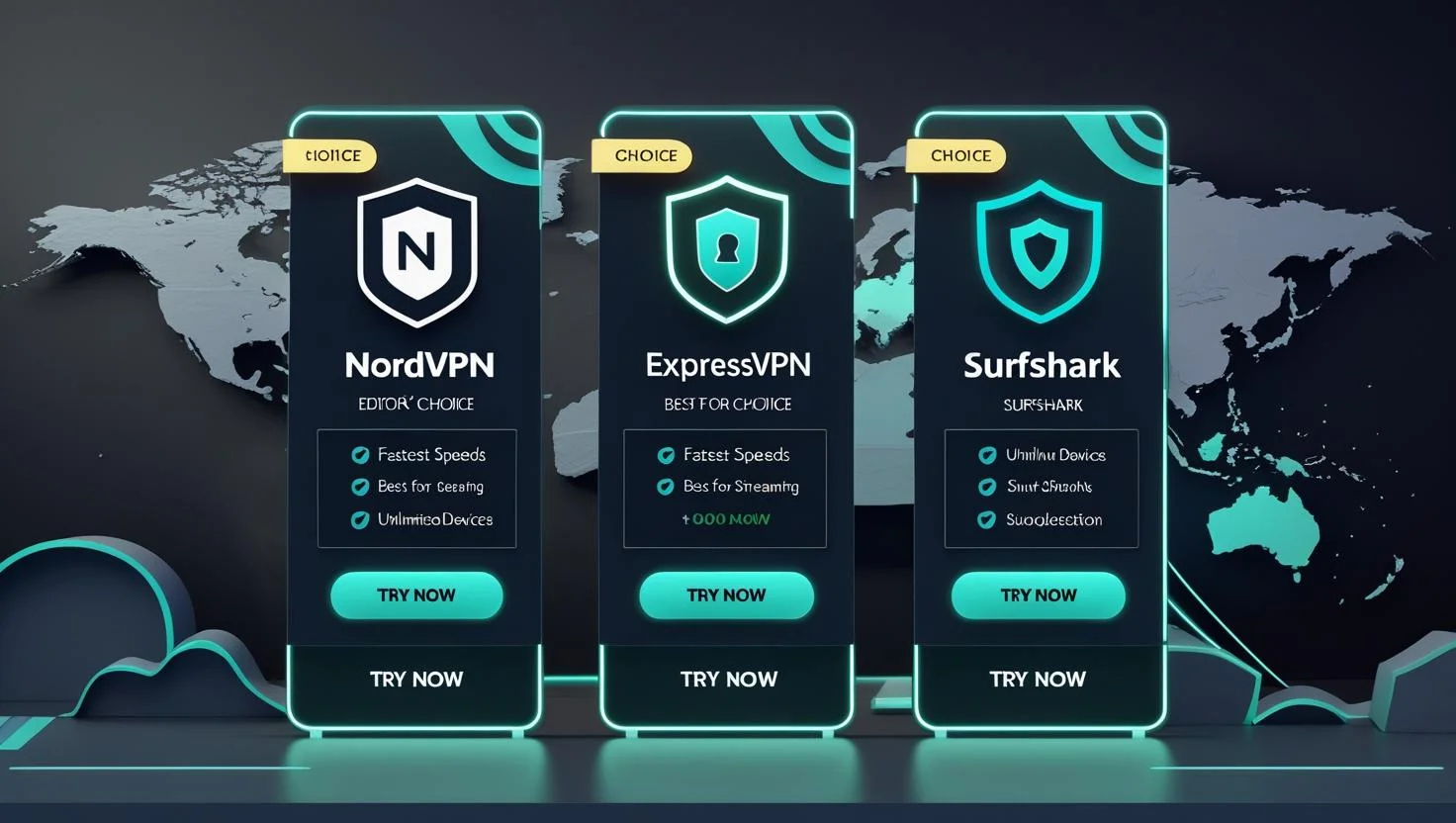
If you’re serious about privacy, or frequently online for streaming, gaming, or work, choose a reputable paid VPN (such as NordVPN, ExpressVPN, or Surfshark – all known for their speed and security). These services often come with money-back guarantees, so there’s little risk in trying them. On the other hand, if you really only need a VPN in rare instances, keep a trusted free VPN on hand – just manage your expectations, and avoid doing anything too sensitive on it.
Finally, remember that whether free or paid, using a VPN is just one aspect of staying safe online. Practice good cyber hygiene in general (strong passwords, updated software, cautious clicking). A VPN, especially a reliable paid one, will greatly enhance your privacy and access, but it’s most effective when combined with overall smart internet habits.
FAQ: Free vs Paid VPNs
Are free VPNs safe for online banking and shopping?
A: It’s generally not recommended to use a free VPN for banking or any sensitive transactions. While a reputable free VPN (like ProtonVPN or Windscribe) will encrypt your connection, many free VPNs have uncertain privacy practices. There’s a risk that a less trustworthy free VPN could log data or inject ads, which is the last thing you want during banking. Additionally, banks often flag VPN IP addresses – and free VPN IPs are heavily shared/flagged – which could lead to account verification problems. For secure activities like online banking or shopping with credit cards, a paid, no-logs VPN with strong security features is a safer bet. Paid VPNs also tend to have more stable connections, reducing the chance of a dropout mid-session. In short, don’t take chances with financial data – use a trusted service (or your secure home network) for peace of mind.
What is the best free VPN for Netflix and streaming?
A: To be frank, free VPNs are not reliable for Netflix or major streaming platforms. Most streaming services block free VPNs outright. That said, a couple of free services make an effort: Windscribe’s free plan sometimes can access Netflix in a desktop browser (not in the app) by using its “Windflix” servers – but these are officially for paid users, and the free workaround might not persist. PrivadoVPN’s free plan has on occasion worked with Netflix US (as noted in some reviews), but it’s inconsistent and you’re limited to 10GB. ProtonVPN Free does not support streaming on its free servers (it’s deliberately restricted). If you truly cannot get a paid VPN, you might try those, but expect mixed results. Realistically, the “best free VPN for Netflix” is to use a free trial or 30-day refund period of a paid VPN. For example, you can utilize NordVPN’s 30-day money-back guarantee or Surfshark’s 7-day free trial to stream Netflix risk-free, effectively for free for that time. This way you get full HD/4K streaming and reliability. Beyond Netflix, other streaming services (Hulu, Disney+, etc.) are even stricter – free VPNs won’t get you in consistently. Recommendation: Use a top-rated paid VPN (see our Best VPN for Netflix guide) if streaming is important to you. It will save you a lot of frustration.
How do free VPNs make money if they don’t charge users?
A: Free VPN providers employ several strategies to cover costs (servers, bandwidth, development) and profit:
- Advertising: Many free VPNs show in-app ads or even inject ads into your browsing. Each ad impression or click gives them revenue. This can be intrusive and poses privacy issues, since ad networks might track you.
- Selling User Data: This is the most concerning method – some free VPNs collect information about your online activities and sell it to data brokers or advertisers. For example, they might log the websites you visit or your device info and monetize that data. It directly undermines the privacy purpose of a VPN.
- Freemium Upsell: The more ethical free VPNs (ProtonVPN, Windscribe, etc.) use a freemium model. The free version is limited (in speed, servers, or data), and they regularly prompt users to upgrade to the paid version for a better experience. Essentially, paying users subsidize the free users. These companies make money by converting a portion of free users into customers, rather than by abusing data.
- Bandwidth Sharing (Unsafe): A few like the old Hola VPN actually turned users into exit nodes and sold their bandwidth. This is rare and a huge red flag – it means other people’s traffic could route through your IP. Always avoid services with this model.
- Investors or Parent Companies: Some free VPNs are offered by larger companies as a way to collect market share or data for other ventures. Others might be research projects funded by grants. In such cases, revenue might not come from users at all, but there’s usually some ulterior motive (data collection, proof of concept, etc.).
In summary, running a VPN isn’t free, so if you’re not paying, understand that something on the back end is paying. Always read the privacy policy. If it’s vague or admits to sharing data with “partners,” that’s a sign your data might be the product. Reputable free services will clearly state their limits and funding model (e.g. “supported by premium users”).
What’s the downside of using free VPNs?
A: We’ve covered many, but to summarize the key downsides:
- Slower Speeds: Free VPNs are usually much slower due to user crowding and possible throttling. High latency and long load times can be frustrating.
- Data Limits: Most free plans cap your data usage (500MB to 10GB per month is common). This means you can’t use them freely for streaming or large downloads.
- Limited Servers: You often get only a few server locations to choose from, which might not meet your needs (and those servers can be very busy).
- No Streaming or Torrenting: Free VPNs rarely work with Netflix/streaming, and many block P2P/torrenting. They’re not suitable for these popular use cases.
- Privacy Trade-offs: Some free VPNs may log or sell your data, or show you ads, which is a privacy risk. There’s also a greater risk of security issues like data leaks or even malware in some free apps.
- Fewer Features: You typically won’t get advanced features (kill switch, split-tunnel, etc.) on free versions. Even basics like customer support or multi-device use can be lacking.
- Unreliability: Free services might have more connection drops, and since you’re not a paying customer, support (if any) will be slow to respond. Some free VPNs are known to suddenly shut down or change policies as well.
In short, free VPNs come with a lot of compromises. They’re fine for short, simple tasks, but not for a seamless or fully private online experience. Always weigh these downsides against the “savings” of $0 cost. For many, the limitations of free VPNs make them a last resort rather than a daily tool.
Can I trust a paid VPN service completely?
A: You should still choose your paid VPN provider carefully, but reputable paid VPNs have earned a level of trust in the industry. Look for providers with:
- No-logs commitments with verification: For example, ExpressVPN, NordVPN, Surfshark, and others have undergone independent audits to confirm they don’t log users. Some have even had real-world court cases or server seizures that proved no logs existed.
- Transparency: Good VPNs publish transparency reports, undergo security audits, and clearly explain their ownership and leadership. If a VPN is very secretive or has a sketchy parent company, think twice.
- Strong Encryption and Protocols: Virtually all paid VPNs use strong AES-256 encryption and secure VPN protocols. If any paid service didn’t, that would be a red flag.
- Positive Reputation: Check reviews (beyond just one site – look at user feedback on Reddit, app stores, etc.). If a paid VPN had a pattern of abuse or breaches, the community will call it out.
That said, “trust but verify” applies. Even with paid VPNs, remember that you are routing your data through their servers – so theoretically you’re trusting them with your data in encrypted form. It’s important to use other layers of security (HTTPS, antivirus, etc.) and not assume a VPN makes you invincible. Also note, not all paid VPNs are equal: some smaller or very cheap VPNs could cut corners. Stick to well-known services with solid track records (the ones mentioned throughout this article are a good starting point). Overall, while no VPN can be 100% “trusted” blindly, a reputable paid VPN is far more trustworthy than a random free VPN, as it has a business incentive to keep your trust and a history to judge.
Will a VPN (free or paid) make me completely anonymous online?
A: No, a VPN is just one tool in the privacy toolbox. It will hide your IP address and encrypt your internet traffic, which protects you from many forms of casual surveillance (like your ISP logging sites or coffee shop Wi-Fi snoopers) and can provide pseudonymity. However, it does not make you 100% anonymous:
- If you’re logged into Google, Facebook, or other services, they still know who you are from your account – VPN or not.
- A VPN doesn’t stop trackers or cookies on websites from identifying you (though some VPNs have features to mitigate this, and you can use browser extensions).
- It doesn’t protect you from malware that might reveal your identity or from making mistakes like posting personal info online.
- Government agencies with sophisticated capabilities might still track activities through means beyond IP (like browser fingerprinting, or by compromising VPN servers – though top VPNs have countermeasures like RAM servers).
In short, think of a VPN as privacy armor, not an invisibility cloak. Paid VPNs give you stronger armor (better encryption, no leaks) compared to free VPNs, but neither makes you vanish from the internet. For high anonymity needs, you’d combine a VPN with other steps: use privacy-focused browsers, possibly the Tor network (some use VPN + Tor), disable scripts, etc. For everyday privacy and security, a VPN (especially a reliable paid one) significantly improves your privacy, but don’t expect it to erase your footprint completely. Always practice good online hygiene in combination with your VPN use.
Can I use a VPN for evading legal issues or engage in illegal activities safely?
A: No – and we do not condone illegal activities. While a VPN will mask your IP and can provide privacy, using it to commit crimes is both unethical and likely to land you in trouble. Law enforcement has techniques to investigate serious offenses that may bypass or involve VPN providers. Most reputable VPNs will cooperate with authorities if presented with valid court orders (even if they don’t have logs, there are other ways investigations proceed). Free VPNs, as discussed, often keep logs, so relying on them for “safety” in illegal acts would be foolish. Additionally, a VPN doesn’t make you immune to undercover operations or sting operations online. In summary, a VPN should be used to enhance lawful privacy – not as a shield for illicit behavior. If something is illegal without a VPN, it’s still illegal with a VPN, and you can still get caught through various mechanisms (from malware, to logs, to simple human error). Stay on the right side of the law for your own good.
Ready to enjoy the internet with faster speeds, better privacy, and full access to content? Instead of struggling with the limits of a free VPN, consider trying a top-rated paid VPN – most offer risk-free trials so you can experience the difference firsthand. Here are a few excellent choices to get you started:
- Try NordVPN Now – 30-Day Risk-Free › (Experience blazing speeds, advanced security features, and Netflix unblocking with our #1 recommended VPN.)
- Get ExpressVPN – 3 Months Free › (Trusted for its strong privacy stance and ultra-fast streaming – now with an exclusive deal for new users.)
- Try Surfshark – Budget-Friendly & Unlimited Devices › (Protect all your devices and stream globally at a fraction of the cost – includes a 7-day free trial for mobile users.)
Make the smart choice for your internet safety in 2025. Upgrade to a quality VPN and browse with confidence! Your privacy, security, and online freedom are worth it.

